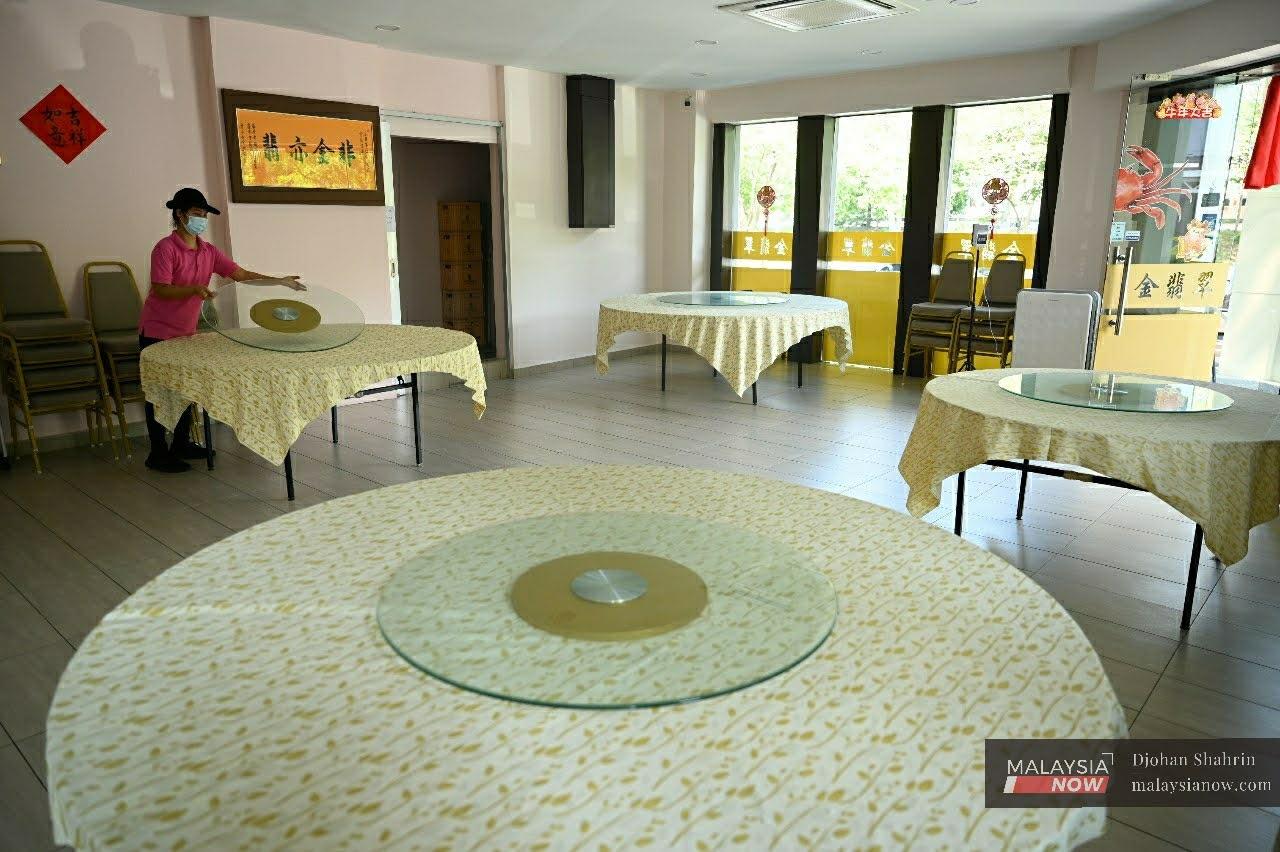Reunion dinners under MCO a tall order for restaurants
With dine-in customers limited to just two per table, restaurateurs are forced to come up with creative ways to continue delivering a crucial part of Chinese New Year celebrations.
Just In
With Chinese New Year just around the corner, restaurants are scrambling as they always do – only this year, they aren’t arranging tables to maximise their use of floor space, rushing to clean and decorate the place, or even hiring extra workers to deal with the flood of customers.
Despite the recent easing of restrictions allowing two dine-in customers per table, they aren’t expecting many to come at all.
This year, restaurateurs are racking their brains to deal with the unprecedented problem of how to serve customers who will be eating their reunion dinners at home, as the government’s movement control order (MCO) continues to see tight restrictions on nearly every aspect of social activities.
While reunion dinners are an important part of Chinese New Year tradition, they are also a major source of income for restaurants which are usually booked out far in advance of the festival date.
In recent years, some restaurants have even taken to serving customers in scheduled shifts in order to accomodate the crowds of people looking to enjoy dinner with their family members.
All that has changed with the advent of Covid-19.
The MCO, reinstated across most of the country on Jan 13, initially limited food businesses to takeaway and delivery services.

Restrictions were recently eased to allow customers to dine in, with a maximum of two per table.
As reunion dinners generally involve a much larger group of people, those looking to share the meal with their family will still have to eat at home.
This means that restaurateurs have been forced to rethink their existing marketing strategies and come up with a new plan for how to successfully promote their menus and sustain their businesses throughout the season.
Vincent, who works at a restaurant in Damansara Jaya, told MalaysiaNow that some customers had made reservations for their reunion dinners as early as last year.
“We had to contact these customers to check if they want to postpone their dinner reservations to sometime after Chinese New Year or have it taken away.
“That’s all we can do for now,” he said.
Stella, who manages another restaurant in Kota Damansara, said she was thankful that none of her customers cancelled their bookings even after the MCO was extended.
“So far nobody has cancelled,” she told MalaysiaNow.
This could be because people want to avoid the hassle of cooking at home, or because they prefer the option of ordering takeaway food and enjoying their meal in the comfort of their own home, she said.
The restaurant is also sending out Chinese New Year promotions to customers which seem to be working well in securing orders.

For Wong Wenshi, a restaurateur in Shah Alam, the game plan is to put a special twist on normal Chinese New Year fare and to be more flexible in order to restrategise.
“Various special menus are catered for different target customers to cope during this challenging period,” she said.
For example, the restaurant is providing combo set menus and festival menus for small and medium-sized families, as well as individual set menus tailored for corporate staff purchase and those who work from home.
The restaurant’s signature crab and fish promotions also help reel in the customers.
Given the restrictions under the MCO, the menus are offered at promotion price so that customers can enjoy their Chinese New Year meals despite the difficult situation.
Another restaurant owner in Shah Alam said she too is focusing on offering small dinner sets.
“We try to change our menu to simple sets so that it’s easy for customers to take out,” she told MalaysiaNow.
It is also more convenient for customers to place orders and enjoy their meal with their family without having to fork out for large and expensive dinner sets, she added.

For now, the main options for takeaway and delivery are services such as GrabFood and FoodPanda. But some, like Wong, have additional plans for this as well.
“We offer free doorstep delivery for those within a 5km radius of our restaurant for a minimum order value,” she said.
“Customers can also make free arrangements for delivery service through phone calls and social media platforms like WhatsApp and Messenger.”
But it’s one thing to deliver the food to the customers – preparation and presentation are an entirely different matter.
“We have thought of several ways to enhance this by thinking from the customer’s point of view, so that we can provide close to the actual dining experience for them upon request,” Wong said.
For example, steamed fish is delivered on the same serving plate used at the restaurant, accompanied by a portable gas stove so that customers can enjoy it as they would have if dining in.
Serving customers well throughout this MCO-Chinese New Year will be a tall order, but they are willing to take on the challenge.
Subscribe to our newsletter
To be updated with all the latest news and analyses daily.
